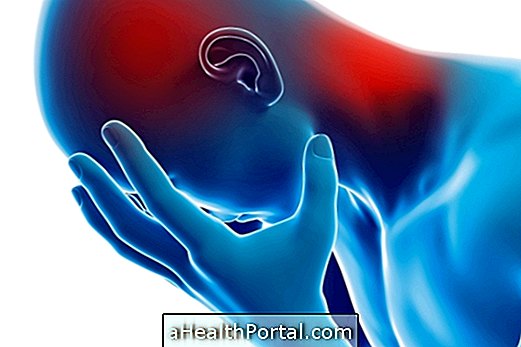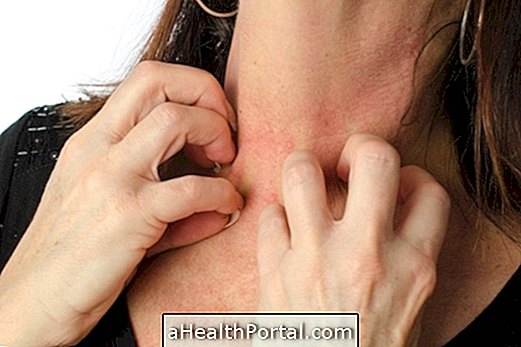Herpes on the tongue, also known as herpetic stomatitis, is caused by the herpes simplex virus 1 (HSV-1), responsible for cold sores and oral and peribucal infections.
This infection is more common in women and is characterized by the presence of painful blisters on the tongue, accompanied by symptoms such as general malaise, fever and body pain. Treatment is usually done with antivirals and pain relievers.

What are the signs and symptoms
Herpes on the tongue is characterized by the presence of vesicles, which can be present not only on the tongue but also in other regions of the mouth, such as the palate or gums. In a few days, these vesicles rupture and form shallow, irregular, clear and painful ulcers, covered by a grayish membrane, with the presence of lingual coating, which results from the difficulty of brushing, due to pain. Ulcers in the mucosa of the mouth and throat can last from 7 to 14 days.
In addition, other symptoms that may arise are general malaise, irritability, drowsiness, headache, body aches, loss of appetite, fever, chills, pain when swallowing, inflammation of the mucous membranes, overproduction of saliva, diarrhea and bleeding gums.
Although it only manifests itself in certain situations, the virus always remains with the person, in the trigeminal ganglion, in the latency phase. In certain situations, such as in cases of fever, trauma, exposure to sunlight and ultraviolet light, stress, AIDS and infections, the virus can be reactivated and cause the disease again. However, the first episode is the one that tends to be more serious.
How transmission occurs
The herpes simplex virus is transmitted by direct contact with secretions infected by the virus, such as saliva, usually by kissing, airborne droplets and the use of contaminated household items or dental instruments. Symptoms usually appear one week after contact with the virus.
Learn how to prevent the transmission of the herpes virus.
How the treatment is done
The treatment must be established by the doctor, after making the diagnosis of the disease.Generally, the doctor recommends the use of acyclovir, which works by reducing the intensity and frequency of recurrent seizures and, in some cases, may prescribe chlorhexidine, which helps to reduce the replication and cytolytic activity of the virus.
In some cases, the doctor may also prescribe painkillers, anti-inflammatories and antipyretics, such as acetaminophen or ibuprofen, to control pain, malaise and fever.
See also how is the treatment for cold sores.
Was this information helpful?
Yes No
Your opinion is important! Write here how we can improve our text:
Any questions? Click here to be answered.
Email in which you want to receive a reply:
Check the confirmation email we sent you.
Your name:
Reason for visit:
--- Choose your reason --- DiseaseLive betterHelp another personGain knowledge
Are you a health professional?
NoMedicalPharmaceuticalsNurseNutritionistBiomedicalPhysiotherapistBeauticianOther
Bibliography
- CHIARELLI, M et. al .. Acute herpetic gingivostomatitis. Odonto Magazine. Vol.32. 124-129, 2008
- LAWALL, Melaine de Almeida et. al .. PRIMARY HERPETIC GENGIVOESTOMATITIS IN ADULT: CLINICAL CASE REPORT. Odonto Science Magazine. Vol.20. 48.ed; 191-194, 2005





-principais-causas-e-tratamento.jpg)


















